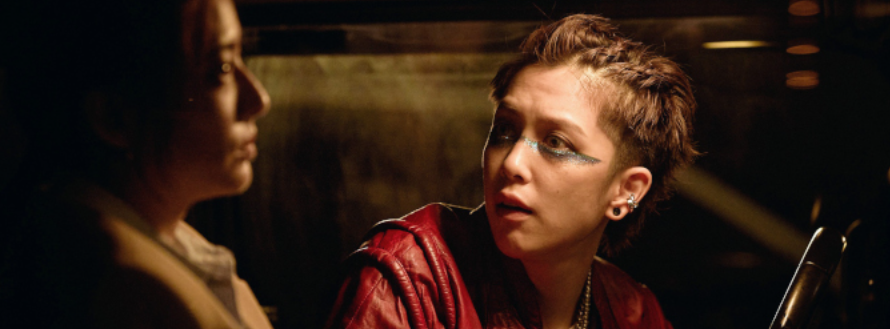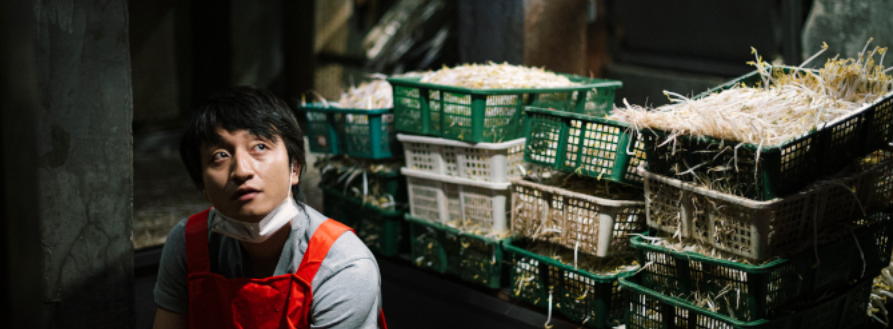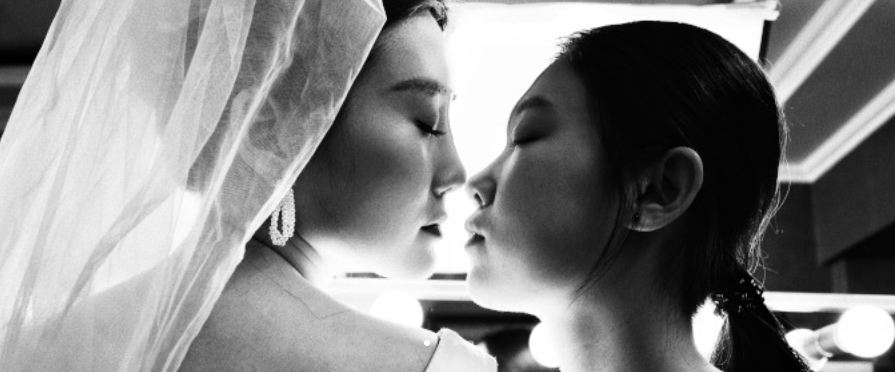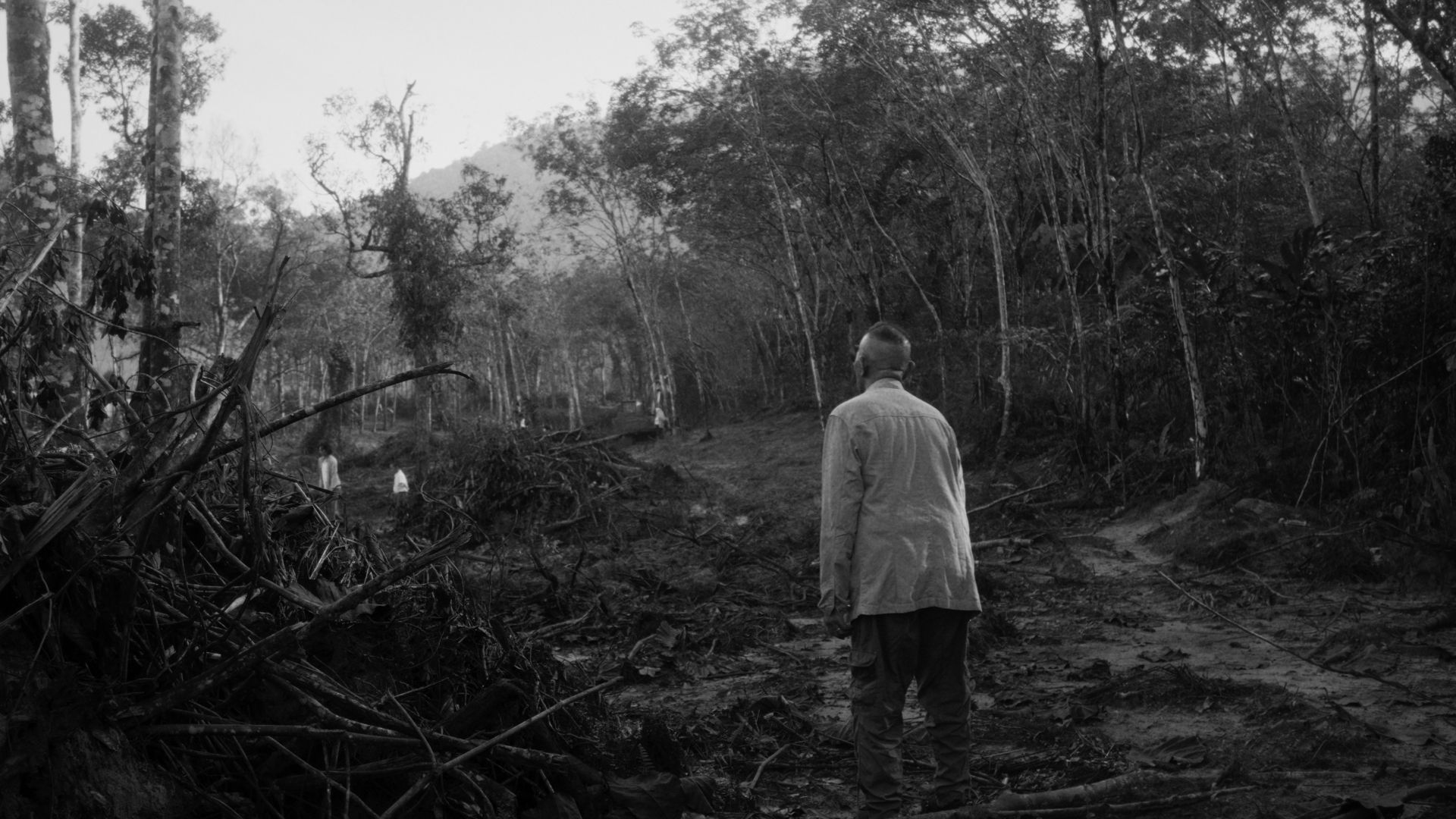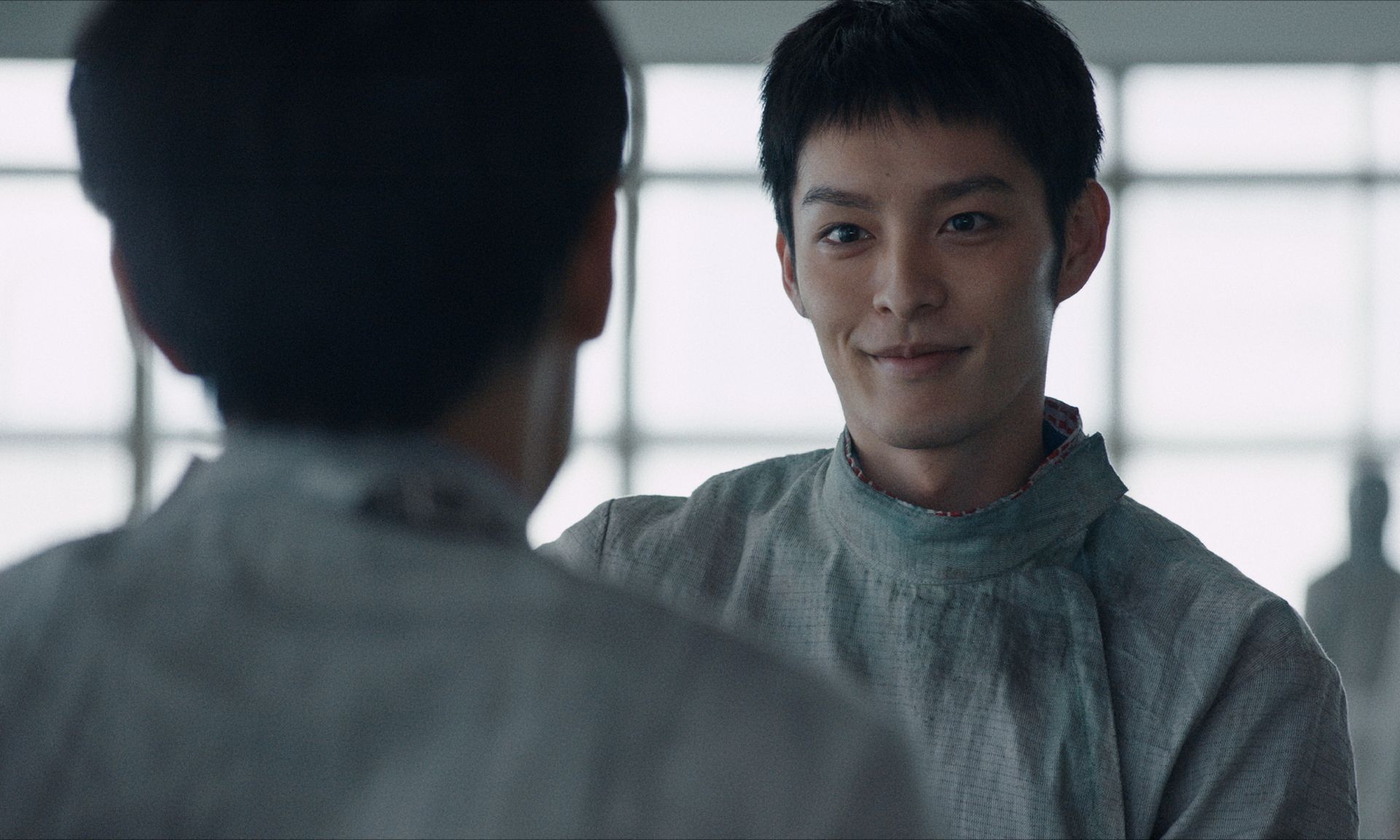Film Review #155: PEACE FUNERAL HOME
Peace Funeral Home (2024)
Dir. Megan Lim En
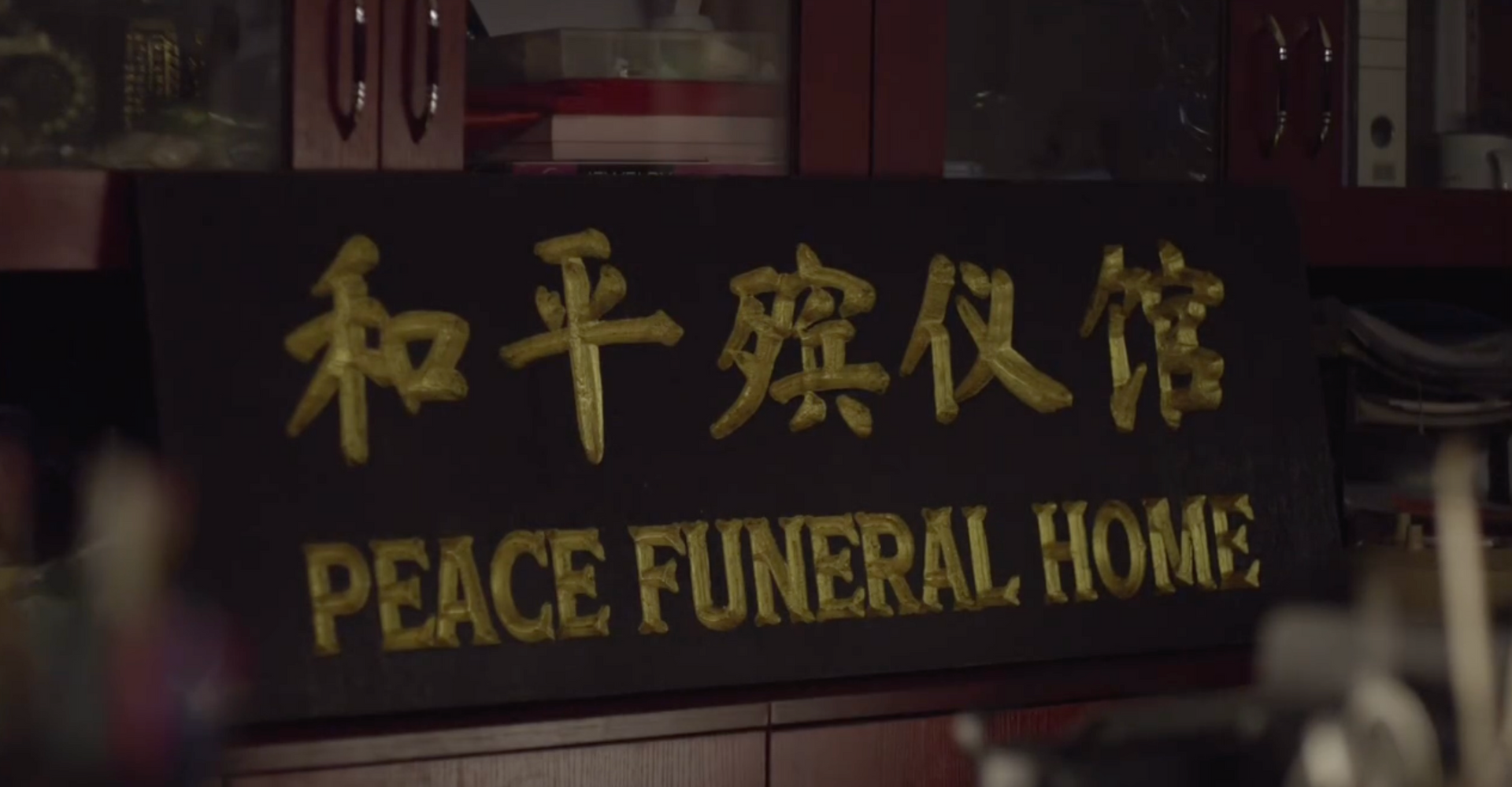
One funeral home, one mixed-up body, a father, and a daughter––this 15-minute short film packs a lingering punch to your gut that stays with you long after the credits roll. Peace Funeral Home, directed by emerging young filmmaker Megan Lim En, is a poignant yet humorous exploration of life, death, and the complex relationships that bind us. What begins as a seemingly simple story of a body mix-up at the Lee Funeral Home reveals a painfully realistic portrayal of tug-of-war between a micromanaging father and a daughter who is determined to take charge.
The film centers around Peace Fu Lee, a headstrong young lady who is more than ready to take over the family funeral business, and her father, Michael Lee, who is not yet ready to retire and let go. Their already strained relationship is pushed to its limits when Peace, tasked with her first independent assignment of delivering a body to its wake, discovers that she has the wrong body. Tensions escalate as Peace tries to right her wrongs and prove her worth, all while trying to maintain her composure under her father’s intense scrutiny.
In just 15 minutes,
Peace Funeral Home masterfully depicts the fraught dynamics of a strained parent-child relationship, exploring the lengths to which our protagonist will go to earn her place––and her father’s trust––in the family business. Trust, or the lack thereof, is a central undercurrent source of tension in familial relationships that is not often discussed; its absence can breed serious and prolonged conflicts that affect a family’s cohesion, much like the relationship between Peace and her father.
As a generational family funeral business, the Lee family is bestowed with a huge amount of trust by many households for their services, yet they ironically struggle with trust within their own walls. This contrast prompts us to reflect upon the differences in how we manage trust in close-knit relationships compared to in broader social situations.
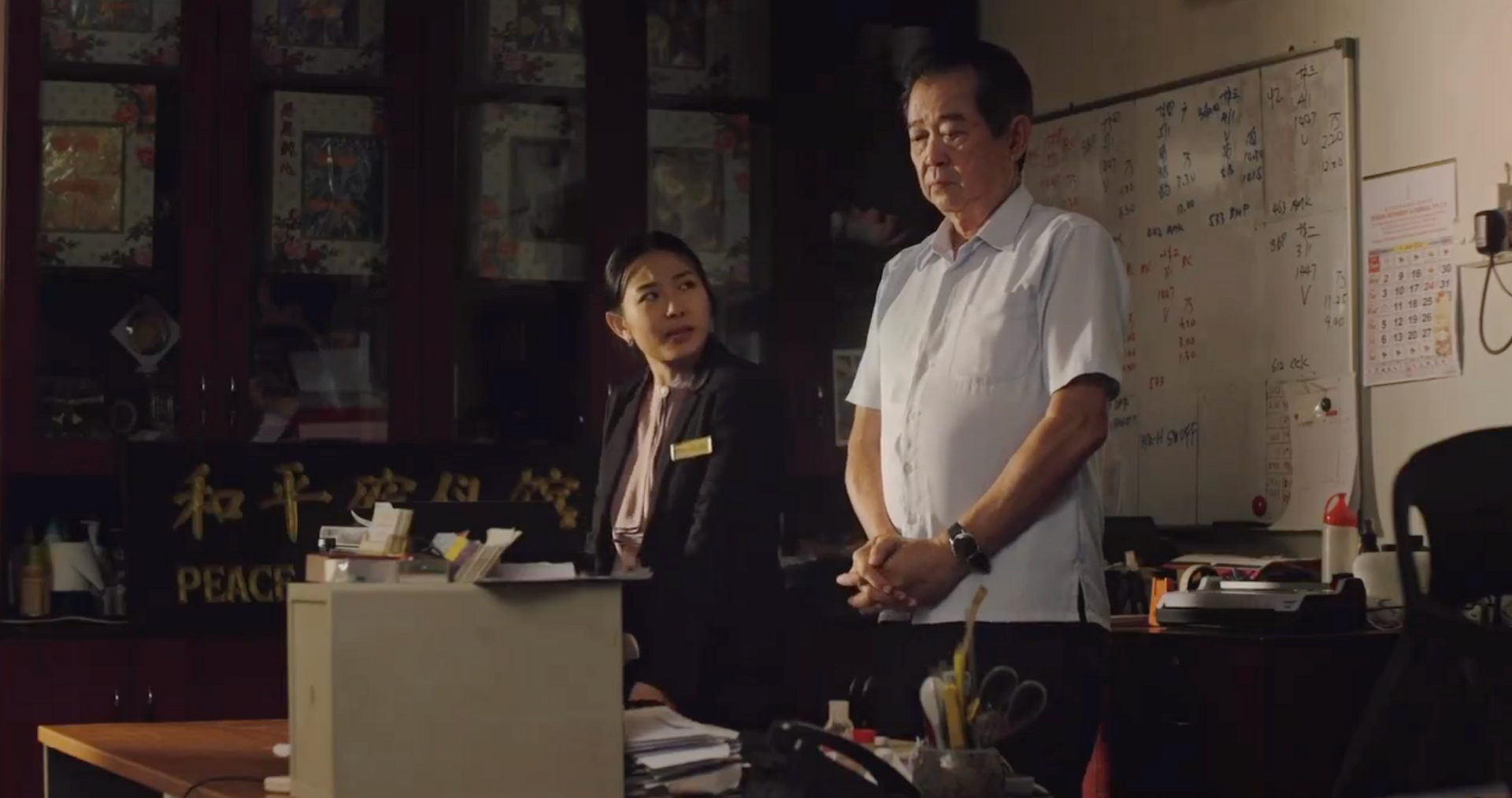
Set against the background of a business steeped in the sombre rituals of death, Peace Funeral Home’s comedic premise of a body mix-up puts forward a sense of absurdity that challenges us to reconsider the gravitas surrounding funerals. On the surface, a funeral business may seem unlikely for a comedy, yet the film’s presentation of the event makes it strikingly relatable, especially in Singapore, where white-curtained funerals are a common sight under our void decks. Peace’s stubborn fight for control over the family business also mirrors a deeply relatable struggle for authority with the film’s young audience, who might be navigating generational shifts within their own families.
Lim presents funerals as a slice of life rather than in a melancholic light, because that is the reality for many people in the funeral business. “They’re just really chill and okay with dead people”, Lim remarked about her interactions at the funeral home where they filmed. “For them, it’s just their job”. She described a segmentation between the emotional gravity of the business and the personal lives of those in the profession, and how they are able to uphold appropriate reverence in the work that they do, but simultaneously accept death as a part and parcel of life. Lim decided to express this sentiment through the film, an example of one of these creative decisions was to have the protagonist’s brother, Nick, play video games on his phone while sitting next to a body in the van.
Humour emerges as the film’s emotional anchor, striking a delicate balance between levity and gravity. Just as the film presents comedy in such solemn contexts, Lim shared how her personal experiences with funerals inspired the film’s setting. She views death not as something to fear, but as an opportunity to find bittersweet joy in the remembrance of those you love.
Interestingly, the Mr Chua (the body) that got mixed-up in the film is actually played by Lim’s uncle, who was very interested in taking up the role. Lim laughingly shared how her uncle, a pastor, rejected the red packet they offered––a common gesture when an actor plays a deceased character––joking that he is covered by a greater power. Recounting another past experience when her uncle placed her grandfather’s ashes in the front seat because “Dad always loves to sit in the front seat”, Lim reminisced about the open and earnest perspective her family has always held toward such events and how it influenced the way she approached the theme.

It is evident how Lim derives a lot of inspiration from her own interpretation and lived experiences, not only in how she approached the subject matter of funerals and familial relationships, but also in the way she framed certain objects in the film.
The van, for example, is a key element in any funeral business, being the only form of transportation for many bodies. Lim realised this when talking to her friend who interned at a funeral home and it influenced the way she presented the vehicle in the film. “I think that it’s strange that a whole person’s life has now become like cargo”, Lim shared. The van is featured quite prominently in the poster and throughout the runtime, and becomes a pivotal setting for a number of climatic scenes.
Through the film, the van evolves into a poignant symbol, representing not just a body in transit but an entire life reduced to a cargo space. It also encapsulates the weight of the Lee family business––one that Peace and her father are fighting to control, one that Peace is responsible for, and one that Peace mistakenly disrupts and attempts to salvage.
Additionally, the van serves as a key location where Peace and her father confront each other directly. Lim’s careful and detailed pacing allows the tension between the duo to gradually escalate, building up to a breaking point rather than having them argue right from the start. The way Peace’s father fusses over small details, like whether she checked the body and closed the door properly, highlights the depth of distrust he has toward her. It is in these subtle moments that we see Peace’s authority repeatedly undermined by her father’s skepticism.
These details showcase Lim’s skills in building up her characters within a short timeframe, using concise and snappy dialogues to create dynamic back-and-forth banter that adds to the film’s strong and escalating pacing and tempo.
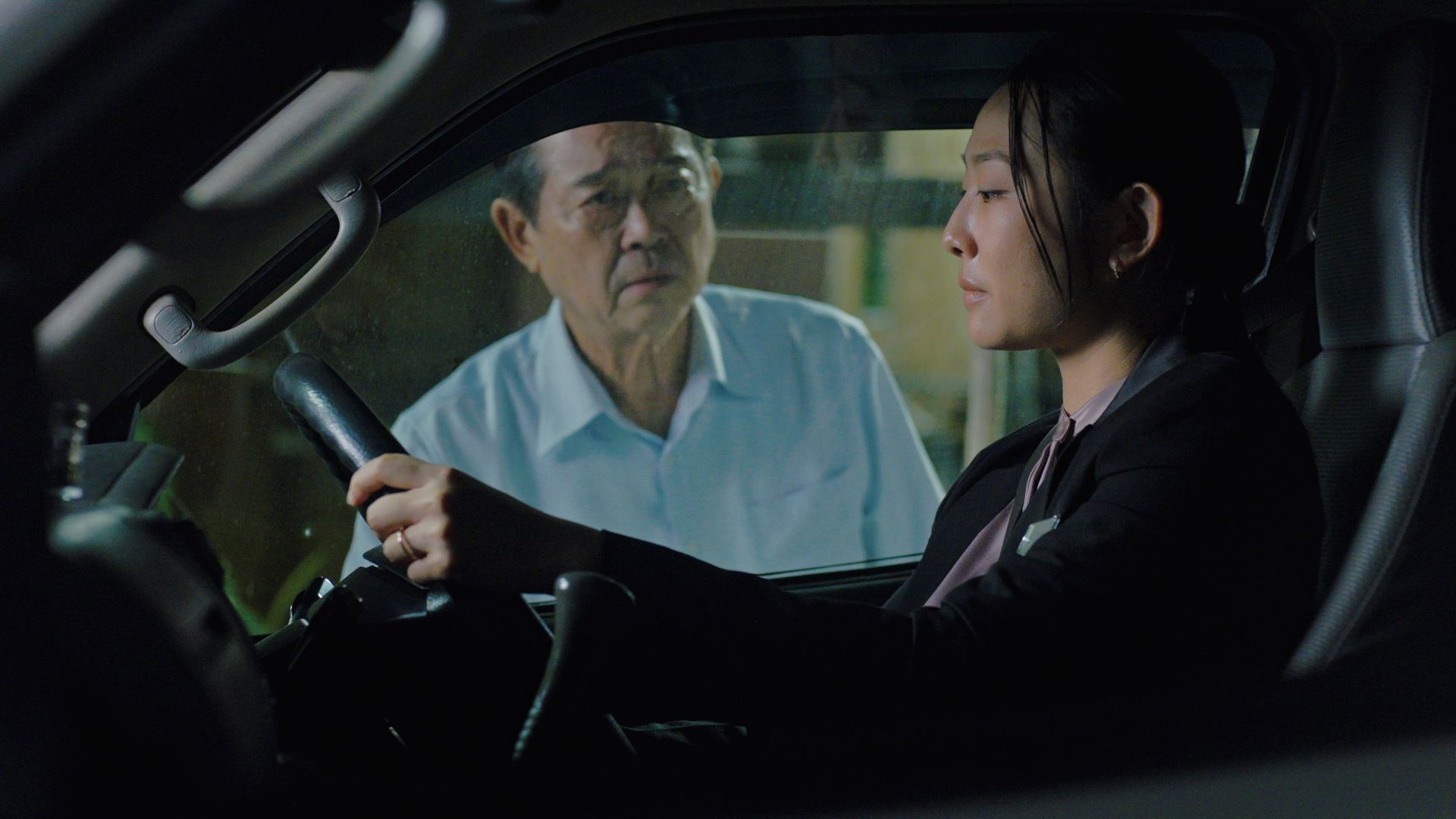
These narrative choices were further shaped by practical constraints during production, which Lim and her team had to navigate to bring their vision to life. She shared that it was not an easy task to work out details like the blocking and filming schedule during the process, since they were only allowed one night in the funeral home. Lim revealed that the script was originally set to be in the embalming room, but because there were actual bodies in the room, they felt it was inappropriate to use the space and adjusted the script according to the location.
Another instance where Lim and her team faced challenges was while filming the scene where a wake was happening. She shared that they had to move the same set of chairs, tables, and flowers in the background to make it look like a real wake was happening. “That’s where we really played with the camera angles and the coordination for the extras walking through”, described Lim, expressing how those were valuable learning moments for her as a director.
Peace Funeral Home was brought to life with the support of SCAPE’s Film Facilitation Programme (FFP), where Lim had the opportunity to be mentored by Carlo Francisco Manatad, an established director based in the Philippines. Lim shared how the mentorship pushed her to approach her script and story pacing from fresh perspectives, providing invaluable guidance in refining her writing and editing process. When asked about her thoughts on directing full-time in Singapore, Lim acknowledged the inherent difficulties in the practice. “In general, the arts in Singapore requires a lot of passion and it requires a lot of sacrifice. But if you are willing to make the sacrifice for it, then it will be something that will be very clear to you.”
Looking ahead, Lim currently has plans for a future project titled
Happy Wife, Happy Life
that is about a woman who is scheming to kill her fiancé so that she can be the sole owner of their Build-To-Order (BTO) flat. “It’s still in development, but I figured I’d probably do it when I’m 35”, Lim joked, possibly referring to the fact that Singaporean singles can only purchase a BTO flat if they are aged 35 and above.
With its sharp humour, realistic dialogues, and thought-provoking setting,
Peace Funeral Home is a standout short film that stays with you long after the watch. The film
was an official selection at the Davis Feminist Film Festival 2024 and a nominee for Best Short Film, Best Director, and other awards at the Singapore Youth Film Festival (SYFF) 2024.
Peace Funeral Home is now available to rent on the Objectifs Film Library as part of SCAPE’s FFP programme at https://objectifsfilmlibrary.uscreen.io/programs/collections-nyfaffp-2022.
-----------------------
About the author: As a sociology major with a background in arts management, Belle is passionate about analysing social issues through film, exploring the intersection of society, culture, and storytelling. When she’s not immersed in films, songs, or books, she can be found either thinking or writing about her next creative endeavour.
This review is published as part of *SCAPE’s Film Critics Lab: A Writing Mentorship Programme, with support from Singapore Film Society.

